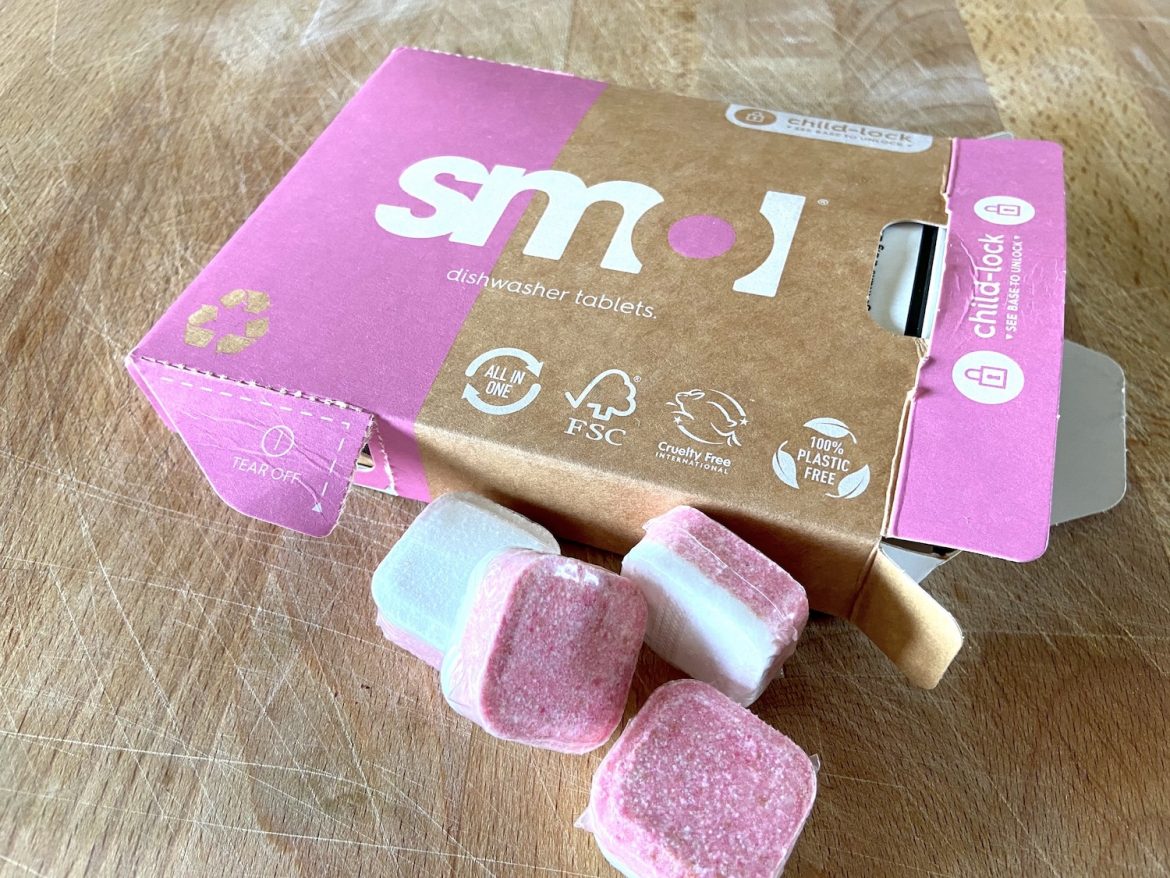We’re always on the lookout for natural, environmentally-friendly cleaning products that are not going to adversely affect our home sewage treatment plant so we were very interested to try Smol’s dishwashing tablets.
Smol’s USP, based on their website, is that their dishwashing tablets are smaller, contain 50% less chemicals and are environmentally-friendly.
There’s no ingredients list on their packaging, so we’ll have to take Smol’s word that they are environmentally-friendly, but we can vouch that their tablets are in fact half the size of every other dishwashing tablet we’ve ever used.
Their branding is attractive, and the tablets arrive in a small, recycled cardboard box. The packaging is 100% plastic-free, which we really liked, and the box will end up on our compost heap when the tablets are done. The protective film around the tablets is water-soluble and biodegradable. Full marks here.
Due to the diminutive size, this makes postage much cheaper, and you can opt for a subscription service with them where they’ll keep sending you more tablets on your schedule. Simply visit their website, put in the average amount of times you use the dishwasher on a weekly basis and they’ll send you new packs on that cycle. It’s a clever business model.
So how did they perform? Well, we think that they did very well. We put on our usual load of plates, bowls, mugs and cutlery. We set the dishwasher to the Eco wash cycle at 50C, and when we unloaded the dishwasher everything was sparkling, spotless, well rinsed with no residue and the plates felt ‘soft’.
It’s worth noting the tablets are unscented, but this is something we’re used to because we don’t like or use tablets that are scented. This may not be everyone’s choice, but it works for us and it’s part of our eco mantra.
Smol’s 30 tablet pack costs £4.60, which is very competitive and beats the competition like ecover based on price, with the same level of cleaning and performance based on our usage.
So what’s the verdict? We think that the subscription model is clever and offers a great level of convenience. They’re eco-friendly and get the cleaning job done. At full price, compared to other eco tablets on the market, they are cheaper, and are therefore good value for money.
We’ve used the tablets for two weeks (seven washes) and we have joined their subscription because it makes financial and environmental sense for us. We use the dishwasher 3-4 times per week, which equates to receiving a pack every 40 days.
It’s also worth mentioning that Smol offers a trial pack, nine tablets for £1, which is a good way to see if these tablets are right for you.
